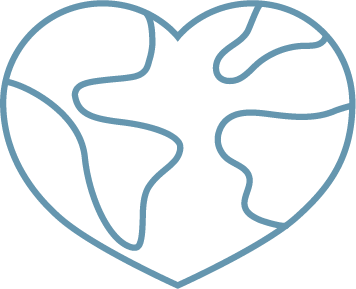Pioneering for a performant sustainable personalization industry
At Solo, ethics have always been central to our activities. We maintain responsible and fair relationships, both with our colleagues and with our industrial partners and service providers. Our commitment to our customers is to create timeless products that are made to last, designed with care and manufactured in a way that respects the environment as well as the people who make them.
As a leading player in our sector, we take the responsibility to drive the transformation of our industry. Every year, we make progress, but there is still a long way to go!
Act4u is our action plan, bringing together our commitments to a sustainable and ethical future. It maps out our path: where we start from, where we go and how we will get there. The 'U' stand for "Universe", "Union" or can also mean "you". All these references mean that our group takes measures to protect and preserve the environment, promote equality, respect and safety for all stakeholders in our business and the community at large.
Act4u is based on four pillars:
U are the PLANET
Drastically reducing our impact across the supply chain.
Our objective is to be Net Zero in 2050. By reducing our emissions by 25% in 2030, being in line with SBTi targets.
The focus is on raw materials, transport and design of our products.
U are the PROMOTER
Promoting sustainable practices across the industry.
Using audits and certifications to bring transparency to our supply chain. In 2030, 90% of our items will have a chain of custody certification.
We know the power of our voice, and we will use it.
U are the PEOPLE
Set ambitious social standards for all involved with Solo.
Promoting respectful and safe working conditions, both in our own facilities and in those of our partners allover the world.
By 2030 90% of our collection will be produced in socially audited factories by third parties.
U are the CHANGE
Creating awareness by sharing knowledge.
By openly sharing our knowledge with partners through webinars, academies and our website, we create a community for eveyrone to grow and continously improve how we work together.
With Act4u, Solo is more than ever at your side to offer you quality products in line with your values and your own commitments to sustainable development. Are you following us?
Commitments throughout the whole value chain
Organic cotton certifications
Organic cotton is grown according to strict specifications: no GMO seeds, ban on synthetic pesticides and herbicides, ban on chemical fertilizers, sustainable water management, etc.
These farming practices help maintaining healthy soils and promote biodiversity. At Solo, we rely on 2 labels to guarantee the traceability of our organic cotton products: OCS (Organic Content Standard) and GOTS (Global Organic Textile Standard).
Global Recycle Standard
GRS certification indicates that the product contains a certain percentage of recycled materials and meets established sustainability and social standards throughout its production chain.
In order to be GRS certified a product must contain minimum 20% of recycled material.
A product must contain minimum 50% of recycled material to use the label on the garment.
We can also use this label to certified our recycled polybags (starting 2024).
The Fair Wear Foundation is an international, independent, non-profit organisation founded in 1999.
It aims to monitor and improve labour conditions throughout the clothing production chain. To achieve this goal, it works with all stakeholders in the garment sector. The Fair Wear Foundation's standards are based on the International Labour Organisation (ILO) and the Universal Declaration of Human Rights. Their aim is to provide workers in the garment industry with rights that guarantee them stable, dignified and properly paid employment with reasonable working hours as well as safe and healthy conditions.
Cascale
(formerly Sustainable Apparel Coalition - SAC) brings together 300 members from across the value chain (brands, factories, trade unions, NGOs, etc.) operating in the textile and consumer goods sectors. Founded in 2009 under the joint initiative of Walmart and Patagonia, it aims to catalyse collective action with 3 objectives: to combat global warming, to guarantee decent work for all and to ensure a nature-friendly future. To this end, Cascale developed the Higg Index, a suite of tools to measure the environmental and social impacts across the value chain, at the brand, manufacturer or finished product level.
The Science Based Targets Initiative (SBTi) is an independent, non-profit organisation,
which was founded on the initiative of the United Nations following COP21 in 2015. It establishes a “sciencebased” framework to decarbonise companies (method for calculating emissions, reduction path, etc.). In 2024, Solo publicly committed to initiating a decarbonisation process.
amfori BSCI
Amfori is a leading global business association that aims to promote sustainable trade and improve social and environmental conditions in the supply chain
BSCI stands for Business Social Compliance Initiative.
It is a system for companies to improve working conditions in their global supply chains.
BSCI focusses on labour standards and aims to enhance social performance in various industries. The initiative encourages companies to adopt ethical business practices, ensuring that workers within their supply chains are treated fairly, with respect to human rights, labour rights and environmental standards
BEPI stands for Business Environmental performance Initiative.
















